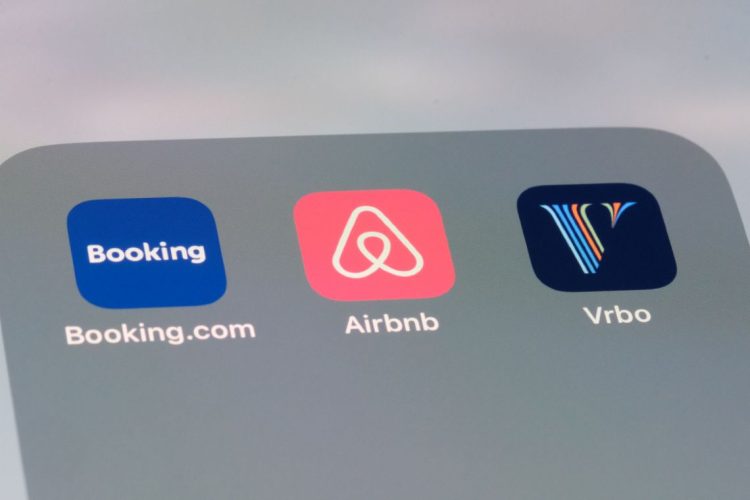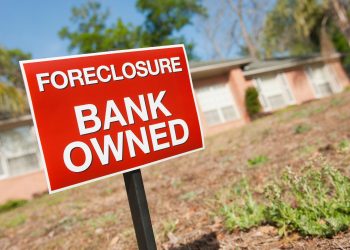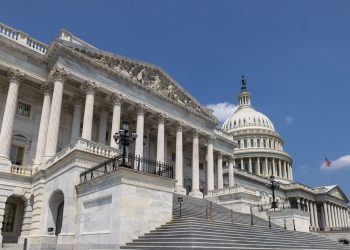Over the past decade or so, various cities throughout the United States have developed legislation or policies geared toward regulating short-term rentals, a market which is dominated by San Francisco-based tech company Airbnb.
Recently an appeals court in Dallas, Texas, rejected the city’s 2023 ordinance to ban most short-term rentals located in single family zones. The Dallas Short-Term Rental Alliance argued that—under Texas law—they had a right to lease their properties.
The court found that the ordinance would “cause the short-term rental owners to ‘suffer probably, imminent, and irreparable injury to their vested property rights,’” local news outlet WFAA reports.
But Dallas isn’t the only city dealing with Airbnbs. Researchers from the University of Nevada, Las Vegas and Georgia State University took a closer look at the impact city-wide legislation in San Francisco, California has had on Airbnbs—and the real estate market more broadly.
According to that paper, there is some evidence that restrictions on Airbnbs can boost the market on for-sale homes. The researchers posit that the reduction in Airbnbs led to those rentals being reallocated back to the long-term housing market, along with decreasing demand for short-term rentals.
“We present additional evidence to support this by examining home price and long-term rental price indices, where we estimate a 10% to 14% reduction in home prices in the highest density quartile,” the report states.
The paper examines the effects of a 2017 San Francisco policy that mandates all Airbnb listings be registered with the city. Airbnb assisted and complied with the registration policy by removing almost 5,000 unregistered listings—about 50%—the report states.
During the inventory crunch, many real estate professionals blamed the fast growing short-term rental market for keeping desperately needed homes off the market, as many investors or owners chose to rent out their properties rather than sell them. Policymakers in at least some cities and regions were sympathetic, and many jurisdictions have sought to curb short-term rentals through local regulatory or legislative action.
As of around 2021, Airbnb had around 2.25 million active listings throughout the United States, according to short-term rental data company Alltherooms. Since its launch, Airbnb claims that hosts have earned over $300 billion.
After the policy enactment in San Francisco, the total number of nights booked fell by over 27,000 in San Francisco. They estimate that the total revenue for Airbnbs in the city fell by about $5.3 million each month as well.
With a 53% drop in nights booked, commercial listings suffered the most from regulations. While they only account for 12% of San Francisco’s active listings, commercial listings experienced a decline in monthly revenue of $1.42 million, or 52%.
Researchers theorized that the city aimed to prevent the commercialization of short-term rentals. The regulations included a “One Host, One Home” policy which “has been adopted by several cities across the U.S. to limit external real estate investment and restore the peer-to-peer short-term rental market to its original ‘sharing’ roots,” the report states.
Mark Tremblay—an assistant professor at UNLV—tells RISMedia the report’s biggest finding is that “enforcement really matters” when it comes to city regulations.
“If you want to regulate the short term market, getting Airbnb involved is critical. For San Francisco—when they do actually enforce it—you see that these policies have a lot of bite,” he continued. “Unless Airbnb enforces it—it’s kind of left to the house hosts who don’t really comply with these rules.”
Both the number of Airbnbs and their influence has grown over the years.
“Airbnb has been much more proactive when engaging with policymakers,” he said. “The required that all hotels and short-term rentals have to make their prices transparent. Airbnb implemented the policy before the FTC made them do so. They’ve been much more open and willing to be a platform that is helping all agents and following policymakers directives.”
The specific restrictions adopted by San Francisco also stood as an important element of why the researchers found positive impacts on long-term housing.
“Overall, our work provides evidence that registration requirements can substantially restrict the size of peer-to-peer short term housing rental markets, while disproportionately driving out relatively commercial activity and potentially reallocating housing back toward long-term markets.”
Although the number of Airbnbs has decreased, affordable housing remains prevalent in San Francisco. In a 2025 report conducted by the California Housing Partnership, they estimate that 21,630 low-income renter households did not have access to an affordable home. This is a jump in 4,000 renters compared to the previous year.
Tremblay explained that in their research they look at both sides of the affordability argument. Airbnbs can drive up rent and housing prices but it could also be a source of income for those who decide to become hosts. “We thought that this could reduce these very negative outcomes of evictions and foreclosures,” he said.
Short-term rentals don’t just benefit hosts. Cities with major events or known vacation destinations profit from tourists and visitors.
“Airbnb is super good for consumers. It’s welfare improving because there’s just no hotel capacity for these large events,” he said. “So the hotels sell out, think of the Super Bowl going to San Francisco or New Year’s Eve in New York City. There’s still more demand than what the hotels can prove. Vrbo and Airbnb act as this flexible supply that allows you to still include all of these tourists coming to your city. These tourists are gonna spend money at restaurants, they’re going to generate tax revenues. There’s a lot of welfare loss from banning short term rentals.”
For more information, see the full report.











